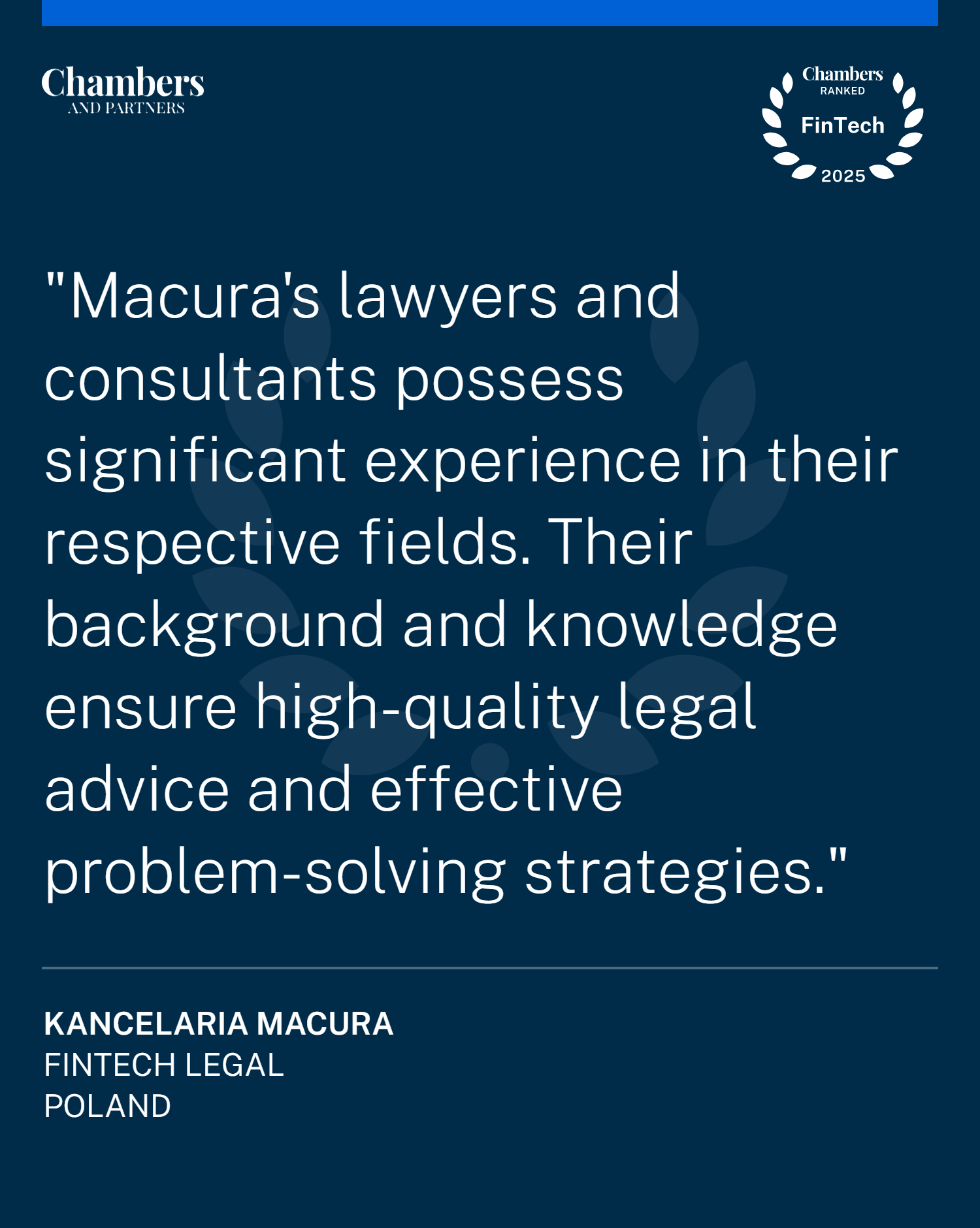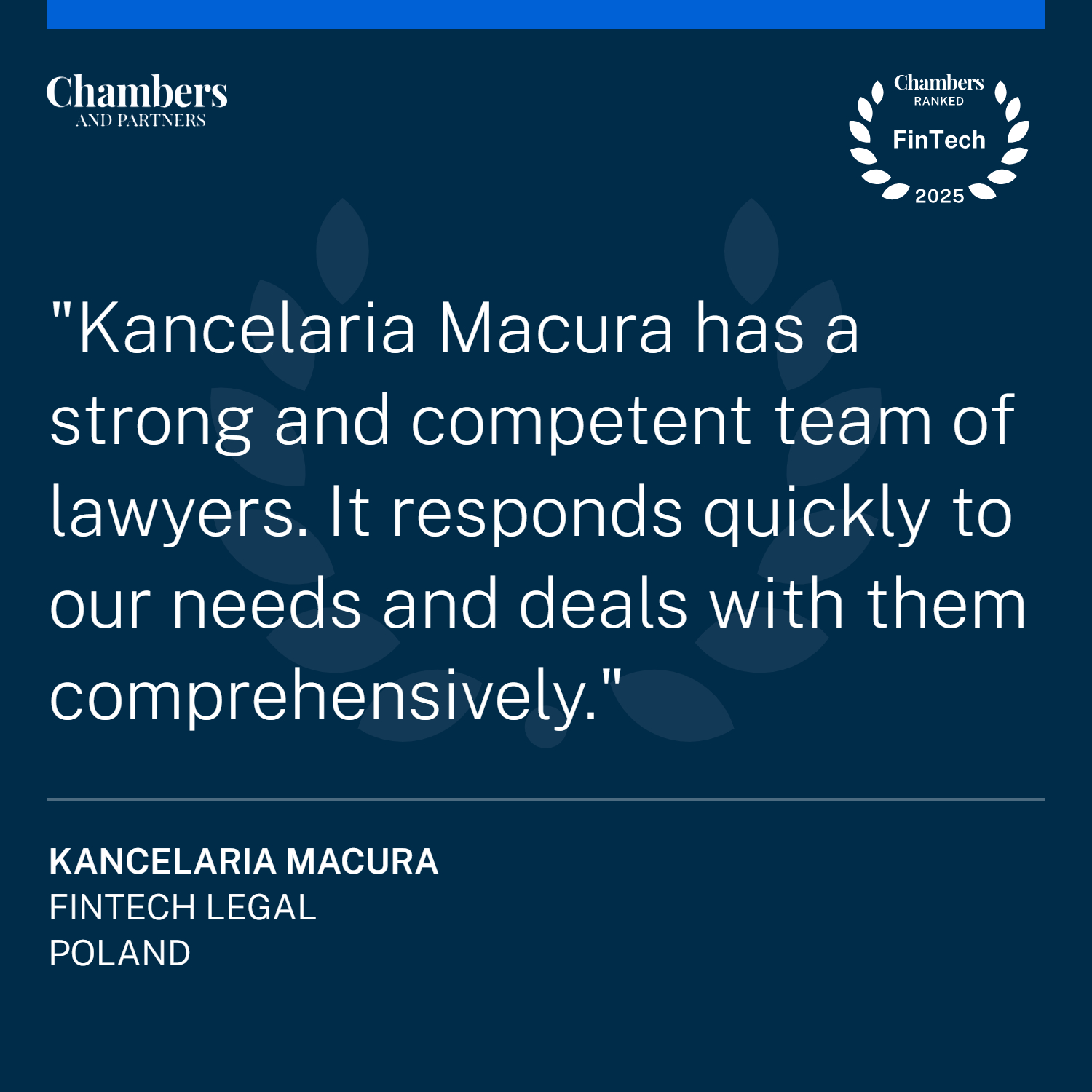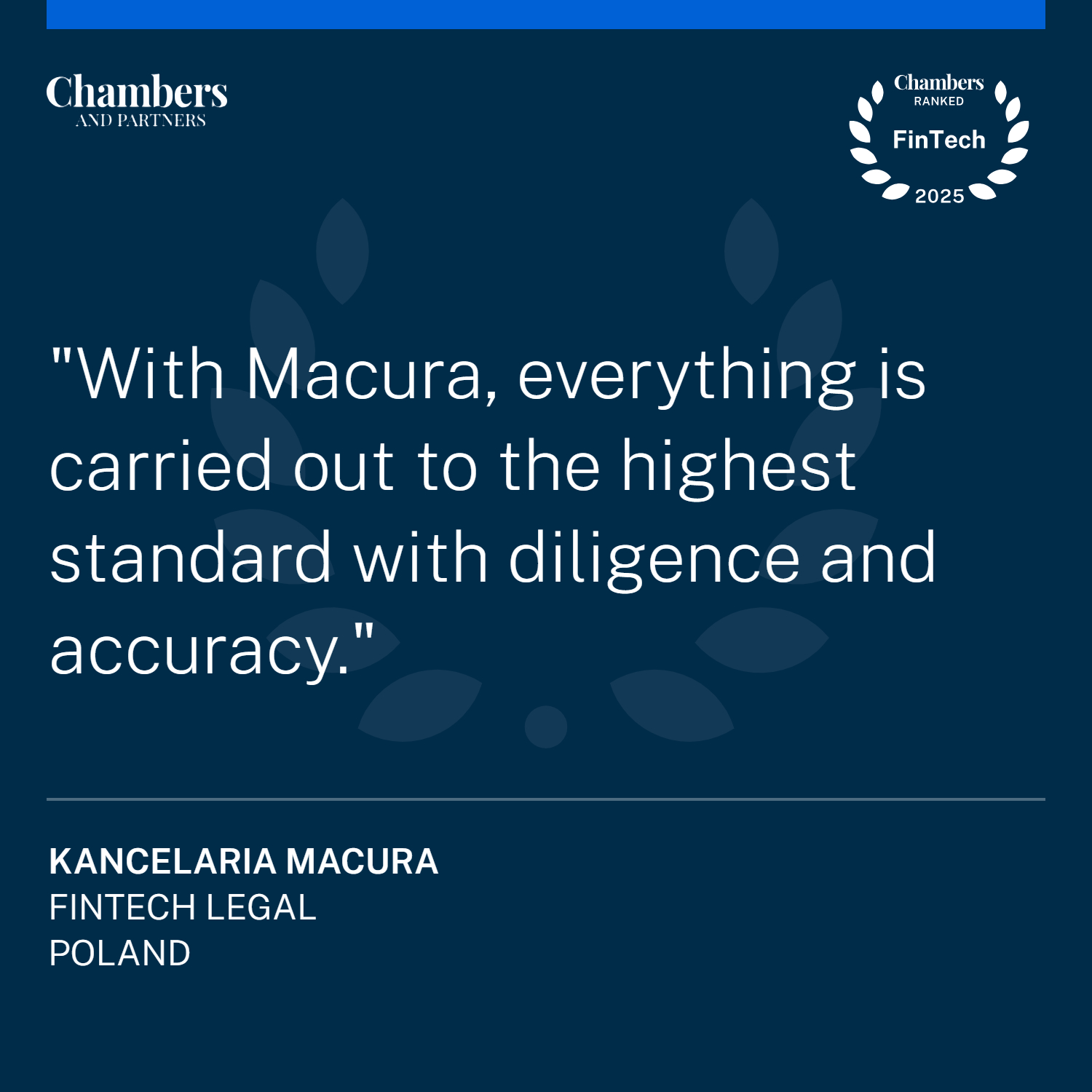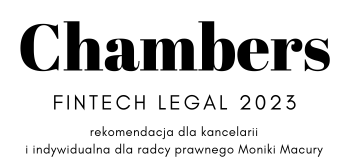
Specializations
Mergers and acquisitions (M&A)
Comprehensive legal support for companies in demergers and mergers, joint venture transactions, the purchase and sale of shares and the set up of holding companies and capital groups.
Every company tackle different stages of business development. Sometimes it is advisable to take advantage of an opportunity and join forces with another entity, such as buying shares, acquisitions or forming a joint venture for a specific project, or a holding company or equity group for further business development. It also happens that the partners decide to continue the business separately, and then it is necessary to divide the company, pay off the business partner or profitably sell their shares.
We support entrepreneurs in the FinTech, financial and technology sectors at each of these stages, starting from comprehensive due diligence, supporting in negotiations and taking care of corporate documentation.

The operation of companies is based largely on the Commercial Companies Code (CCC), but also on a number of other pieces of legislation, such as:
- Competition and Consumer Protection Law;
- Entrepreneur’s Law;
- Accounting Act;
- Civil Code;
- Law on supervision of the financial market;
- in terms of its licenses and permits, e.g. for the provision of payment services – also on a number of other laws, such as the Payment Services Law, the Banking Law, the Telecommunications Law.
Our legal advisory covers all types of merger and demerger transactions collectively referred to as mergers and acquisitions (M&A):
- merger, aquisition and division of companies;
- joint venture transactions;
- sale of shares or stocks;
- creation of consortium holdings and capital groups (parent/sister companies);
- due diligence of investors and sellers.

- How to safely buy or sell shares in a FinTech company?
- How to increase the company’s share capital and issue shares?
- What legal form (if any) should be adopted for the implementation of joint ventures?
- How to incorporate a FinTech company into a holding or capital group structure?
- How do you verify a potential business partner before a joint venture?
- Why it is worthy to perform due diligence, how to conduct it correctly?
- What benefits will a letter of intent, investment memorandum and investment agreement bring to the investment?
- How long does the merger process take, and which merger model is considered the most advantageous in a given case?

- We support clients at every stage of the transaction from its planning and structuring to post-trade counseling;
- We conduct due diligence on investors and sellers;
- We agree with the client on the scope of due diligence to provide the client with a picture of the financial, tax, legal and organizational situation of the venture;
- As a result of our due diligence, we provide the client with a list of legal, financial, tax risks and their impact on the transaction;
- We are developing a legal model for the transaction;
- We advise on the valuation of the company depending on the chosen form of financing;
- We develop offering documentation for potential investors;
- We negotiate with institutions and potential investors from the initial discussions to the closing of the entire process;
- We create and review draft transaction documentation, such as letters of intent, non-disclosure agreements (NDAs) and share purchase agreements (SPAs);
- We prepare documentation for joint venture transactions (joint venture agreements) and shareholders’ agreeements;
- We represent clients before courts and authorities;
- We take care to protect the company’s data at every stage of the project;
- We support newly established entities at the post-transaction stage.

We support Polish, European and international entrepreneurs in the FinTech, technology and financial sectors, including those pursuing cryptocurrency and tokenization projects, in buying and selling shares, creating joint ventures, holding companies and capital groups. We support buyers and sellers in the design and implementation of due diligence studies, creating suggestions based on them to minimize possible risks.








